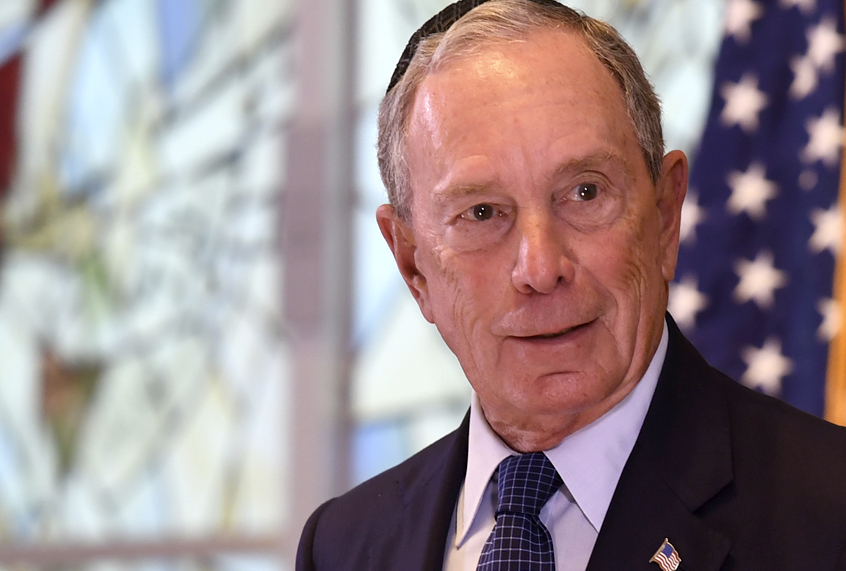Billionaire and former New York City Mayor Michael Bloomberg took to Twitter on Sunday to announce that he is officially running for president.
“I’m running for president to defeat Donald Trump and rebuild America,” Bloomberg said in his tweet. “I believe my unique set of experiences in business, government, and philanthropy will enable me to win and lead.”
In an ad that Bloomberg posted along with his tweet, the Bloomberg L.P. co-founder is described as a “middle class kid who had to work his way through college, then built a business from a single room to a global entity, creating tens of thousands of good paying jobs along the way.” Pivoting to Bloomberg’s three terms as New York City mayor, the ad says that after the September 11 terrorist attacks he “brought a city back from the ashes, and brought back jobs and hope with it.” It describes Bloomberg’s major initiatives as mayor, including “creating tens of thousands of affordable housing units,” “raising teachers’ salaries and kids’ graduation rates” and supporting LGBT rights. The ad also spotlights Bloomberg’s philanthropic efforts to stop the “terrible toll of gun violence,” fund college educations for “thousands of deserving low income and middle class kids” and support “life saving medical research.” It additionally mentions Bloomberg’s efforts to address global warming, describing how he has opposed the coal lobby and President Donald Trump’s administration in order to “protect the only home we have from the growing menace of climate change.”
For the 2020 presidential election, the ad promises to focus on guaranteeing health insurance for all Americans (while opposing Medicare for All), increasing taxes on the wealthy, strengthening the middle class and making it so that “jobs that just allow you to get by will become jobs that let you get ahead.” The ad closes by describing Bloomberg as a “jobs creator, leader, problem solver.”
Bloomberg plans on kicking off his campaign with an intensive advertising blitz, spending at least $37 million on television advertising for the next two weeks, according to CNN’s reporting of data from Kantar Media/CMAG. Next week Bloomberg’s massive ad buy will air 60 second spots on his campaign across 100 media markets. His ad purchases will surpass those of every other Democrat running so far except for his fellow billionaire, Tom Steyer, who will have aired nearly $63 million of TV ads by the time Bloomberg’s initial ad run has ended. Because Bloomberg has entered the race much later than most other candidates, he has decided not to compete in the first four voting contests (Iowa, New Hampshire, Nevada and South Carolina) and instead focus on winning in the states that will complete in the Super Tuesday primaries on March 3.
When it was first reported in October that Bloomberg was thinking of running for president, his interest was framed in the context of former Vice President Joe Biden’s campaign, with Bloomberg reportedly thinking of jumping into the race if it looked like Biden would need to drop out as he floundered in polls against Sen. Elizabeth Warren of Massachusetts. At the time, however, a Bloomberg associate told CNBC that “nothing can happen unless Biden drops out, and that’s not happening anytime soon.”
In addition to co-founding the financial, software, data, and media company Bloomberg L.P. and serving as New York City’s mayor from 2002 to 2014, Bloomberg also spent more than $100 million helping the Democrats recapture the House of Representatives in the 2018 midterm elections. Yet the former mayor’s candidacy is not without controversy among Democrats: He has been criticized for implementing stop-and-frisk in New York City (a policy for which he has recently apologized) and for attempting to “buy” the presidency with his wealth.
“You’re not going to get elected president by avoiding Iowa, by avoiding New Hampshire, South Carolina and Nevada,” Sen. Bernie Sanders of Vermont, one of Bloomberg’s opponents for the Democratic nomination, said at a rally earlier this month. “You’re not going to buy this election by spending hundreds of millions of dollars on media in California. Those days are gone.”


